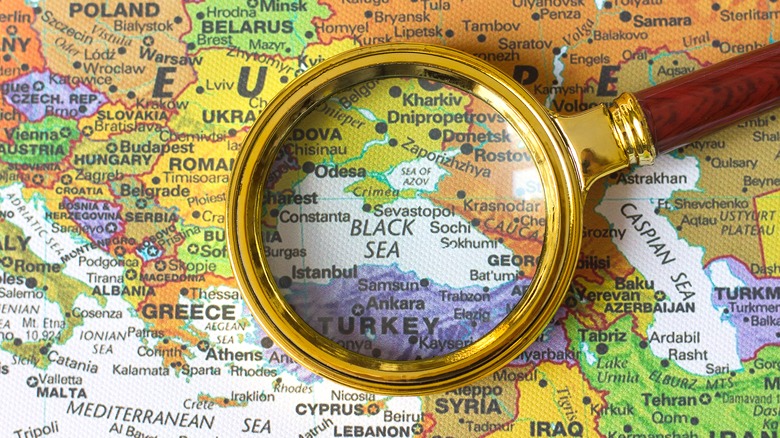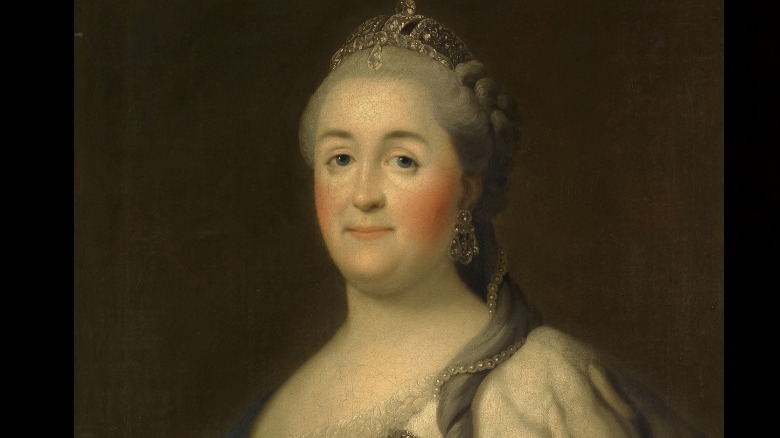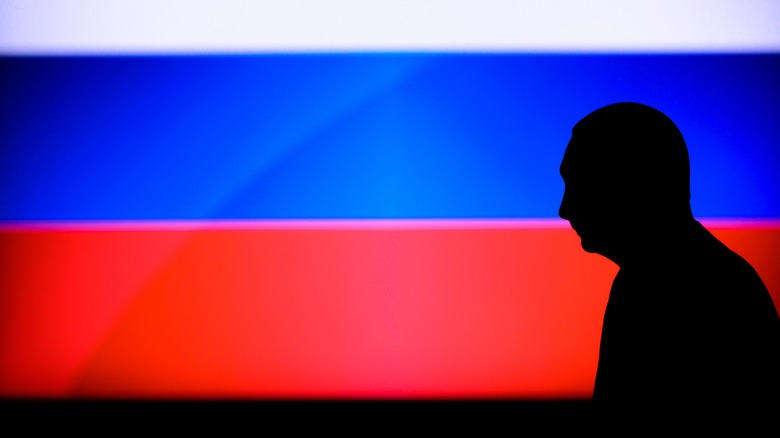Here's What Happened The First Time Russia Annexed Crimea
Located on the Black Sea, Crimea has had an embattled history (via Diario AS). According to Britannica, the first settlers arrived in the area in 1000 B.C. Although Crimea is widely known for being home to the ethnic Tatars, it was first under Greek and Roman rule. Eventually, it transformed into the khanate of Crimea. However, by 1475, Crimea had fallen under Ottoman control. As Diario AS explains, Crimea is significant due to its trade routes and access to the Black Sea. Although it remained a part of the Ottoman Empire for centuries, that all changed in 1783 when Catherine the Great annexed the territory (per Study).
The BBC reports that Catherine, a Prussian-born Princess, married future emperor Peter III in 1745. By all accounts, the marriage was miserable, but Catherine was not deterred by this (via History). Peter was an unpopular and weak ruler. Per Smithsonian Magazine, Catherine took advantage of this, and with the help of her lover, Gregory Orlov, she overthrew her husband. Now an empress, Catherine proceeded to westernize and expand Russian territories. The publication notes that she was inspired by Peter the Great, Peter III's grandfather. Britannica states that Peter the Great's expansion efforts in the 17th century caused strife between Russian and the Ottoman Empire. When Catherine came to power in 1762, she only added fuel to this fire (also via History).
Catherine the Great defeated the Ottoman Empire
According to Britannica, Russia was desperate to get access to the Black Sea. As a result, several wars were fought between Russia and the Ottoman Empire to obtain Crimea. Although Peter the Great was unsuccessful in gaining the territory, Smithsonian Magazine states that he instead founded St. Petersburg on the Baltic Coast. However, Catherine was ambitious and determined to get Crimea for herself. This resulted in the Russo-Turkish War of 1768, which ended in 1774 with the Treaty of Küçük Kaynarca (also per Britannica). Although this provided Crimea with independence, it allowed Russia to have access to the Black Sea. Nevertheless, it seems that Catherine was not satisfied with this conclusion.
After the war, Catherine placed Prince G.A. Potyomkin in charge of Crimea, per the Boris Yeltsin Presidential Library. The British Museum writes that Potyomkin was Catherine's lover and an army officer. Diario AS reports that in 1783, she annexed Crimea for Russia without warning. Smithsonian Magazine explains that other countries, including Prussia and France, decided that there was little to be done about this and let it go. In the end, she created a Black Sea fleet and gained access to the Dardanelles and Bosporus Straits.
Potyomkin had wholeheartedly encouraged Catherine to annex Crimea. In a letter, he wrote (via the Boris Yeltsin Presidential Library), "The position of Crimea interferes into our borders ... You must raise the glory of Russia ... Crimea acquisition cannot strengthen You or enrich but will give You peace and calm."
The aftermath of the first annexation
With the annexation, the Boris Yeltsin Presidential Library writes, Catherine signed a manifesto to Crimea's citizens that stated that she would "'treat them as well as our innate subjects, defend and protect their personality, property, cathedrals and inborn faith ..." Furthermore, Catherine abolished slavery and focused on developing Crimea's economy and trade. Potyomkin, on the other hand, established parks. Despite this, Smithsonian Magazine reports, the people of Crimea suffered greatly under Catherine's rule. She cared little for peasants and was a supporter of serfdom. When there was unrest in her territories, she resorted to violence. Furthermore, she provided nobles with a great deal of power.
According to Diario AS, Crimea once again gained its independence in 1917 with the Russian Revolution. However, Stalin took control of it in 1921. It remained a Russian territory until 1954, when Nikita Khrushchev handed it to Ukraine. When the Soviet Union ended in 1991, Ukraine gained its independence and Crimea remained as part of it. However, in 2014, the BBC reports, Russia once again annexed Crimea. The Conversation compares this annexation committed by Russian President Vladimir Putin to Catherine's own actions centuries earlier. Now, as a war wages between Russia and Ukraine, CNBC notes that Ukraine hopes to one day regain Crimea.


